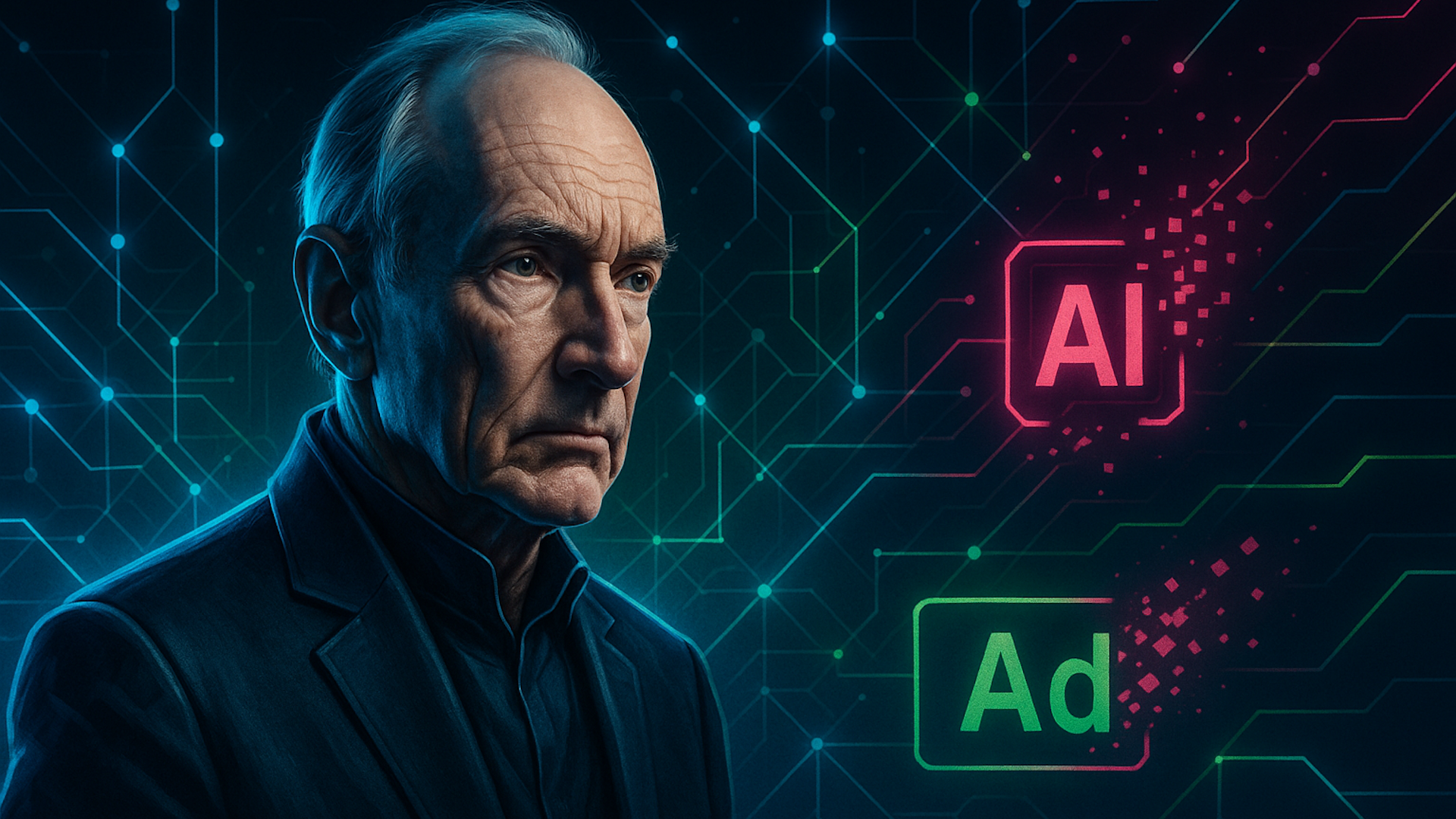Tim Berners-Lee warns AI may collapse the ad-funded web

Sir Tim Berners-Lee, who invented the World Wide Web, is worried that the ad-supported web will collapse due to AI. In a new interview with Nilay Patel on Decoder, Berners-Lee said:
- “I do worry about the infrastructure of the web when it comes to the stack of all the flow of data, which is produced by people who make their money from advertising. If nobody is actually following through the links, if people are not using search engines, they’re not actually using their websites, then we lose that flow of ad revenue. That whole model crumbles. I do worry about that.”
Why we care. There is a split in our industry, where one side thinks “it’s just SEO” and the other sees a near future where visibility in AI platforms has replaced rankings, clicks, and traffic. We know SEO still isn’t dead and people are still using search engines, but the writing is still on the wall (Google execs have said as much in private). Berners-Lee seems to envision the same future, warning that if people stop following links and visiting websites, the entire web model “crumbles,” leaving AI platforms with value while the ad-supported web and SEO fade.
On monopolies. In the same interview, Berners-Lee said a centralized provider or monopoly isn’t good for the web:
- “When you have a market and a network, then you end up with monopolies. That’s the way markets work.
- “There was a time before Google Chrome was totally dominant, when there was a reasonable market for different browsers. Now Chrome is dominant.
- “There was a time before Google Search came along, there were a number of search engines and so on, but now we have basically one search engine.
- “We have basically one social network. We have basically one marketplace, which is a real problem for people.”
On the semantic web. Berners-Lee worked on the Semantic Web for decades (a web that machines can read as easily as humans). As for where it’s heading next: data by AI, for AI (and also people, but especially AI):
- “The Semantic Web has succeeded to the extent that there’s the linked open data world of public databases of all kinds of things, about proteins, about geography, the OpenStreetMap, and so on. To a certain extent, the Semantic Web has succeeded in two ways: all of that, and because of Schema.org.
- “Schema.org is this project of Google. If you have a website and you want it to be recognized by the search engine, then you put metadata in Semantic Web data, you put machine-readable data on your website. And then the Google search engine will build a mental model of your band or your music, whatever it is you’re selling.
- “In those ways, with the link to the data group and product database, the Semantic Web has been a success. But then we never built the things that would extract semantic data from non-semantic data. Now AI will do that.
- “Now we’ve got another wave of the Semantic Web with AI. You have a possibility where AIs use the Semantic Web to communicate between one and two possibilities and they communicate with each other. There is a web of data that is generated by AIs and used by AIs and used by people, but also mainly used by AIs.”
On blocking AI crawlers. Discussion turned to Cloudflare and their attempt to block crawlers and its pay per crawl initiative. Berners-Lee was asked whether the web’s architecture could be redesigned so websites and database owners could bake a “not unless you pay me” rule into open standards, forcing AI crawlers and other clients across the ecosystem to honor payment requirements by default. His response:
- “You could write the protocols. One, in fact, is micropayments. We’ve had micropayments projects in W3C every now and again over the decades. There have been projects at MIT, for example, for micropayments and so on. So, suddenly there’s a “payment required” error code in HTTP. The idea that people would pay for information on the web; that’s always been there. But of course whether you’re an AI crawler or whether you are an individual person, it’s the way you want to pay for things that’s going to be very different.”
The interview. Sir Tim Berners-Lee doesn’t think AI will destroy the web






Recent Comments